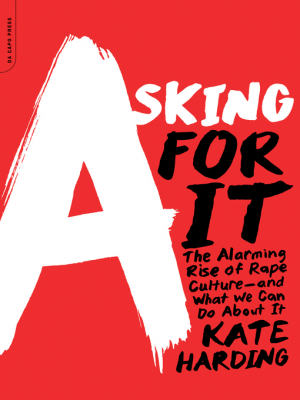Content Warning: This blog post discusses topics related to rape and sexual assault.
Recent high-profile news stories have brought the terms “rape culture” and “bystander behavior” into mainstream discussions about rape, sexual assault and gender violence. Although this can be a difficult to understand, emotionally fraught subject matter, these news stories are an opportunity for us to explore, discuss and understand these important topics in a more meaningful way.
So what is “rape culture”? Simply put, that’s the term for behaviors and attitudes prevalent in society that normalize or trivialize sexual violence. It might be difficult to imagine someone trivializing something so serious, but when you start to look around,examples abound — from so-called “locker room” or “frat house” banter, to the outright sexual threats many women receive on a daily basis. It’s also very important to remember that we’re not just talking about words and phrases; this is all directly linked to actions, to creating a culture where rape is prevalent — like in the United Sates, where every two minutes, a person is sexually assaulted.
“Bystander behavior” is just one part of rape culture; this term describes the actions not taken by those who observe rape culture happening in real time. In other words, bystanders aren’t the actual perpetrators of violence, by but allowing it to happen, staying silent or ignoring the issue, bystander behavior can allow rape culture to thrive.
So what can we do about it? Well, for one, we can become educated and work to become better advocates and learn to disrupt bystanders and perpetrators alike. If you are interested in this topic, here are a few nonfiction titles to consider checking out:

- Redefining Rape: Sexual Violence in the Era of Suffrage and Segregation by Estelle Freedman
- Asking for It: The Alarming Rise of Rape Culture—and What We Can Do About It by Kate Harding
- Missoula: Rape and the Justice System in a College Town by Jon Krakauer
- Unsportsmanlike Conduct: College Football and the Politics of Rape by Jessica Luther
- At the Dark End of the Street: Black Women, Rape and Resistance: A New History of the Civil Rights Movement from Rosa Parks to the Rise of Black Power by Danielle L. McGuire
- Rape is Rape: How Denial, Distortion and Victim Blaming are Fueling a Hidden Acquaintance Rape Crisis by Jody Raphael
- Yes Means Yes!: Visions of Female Sexual Power & a World Without Rape by Jessica Valenti
If you or someone you know has experienced sexual violence and would like to talk about it or explore available resources, consider getting in touch with Pittsburgh Action Against Rape online at paar.net or by calling their confidential, 24-hour hotline at 1-866-END-RAPE.
Want to learn more about rape culture?
Request a Nonfiction Title on Rape and Sexual AssaultGinny is a baker of treats, reader of fiction and Coordinator of Volunteer Services based out of the Office of Programs and Partnerships at CLP – East Liberty. She wants to pet your dog.
